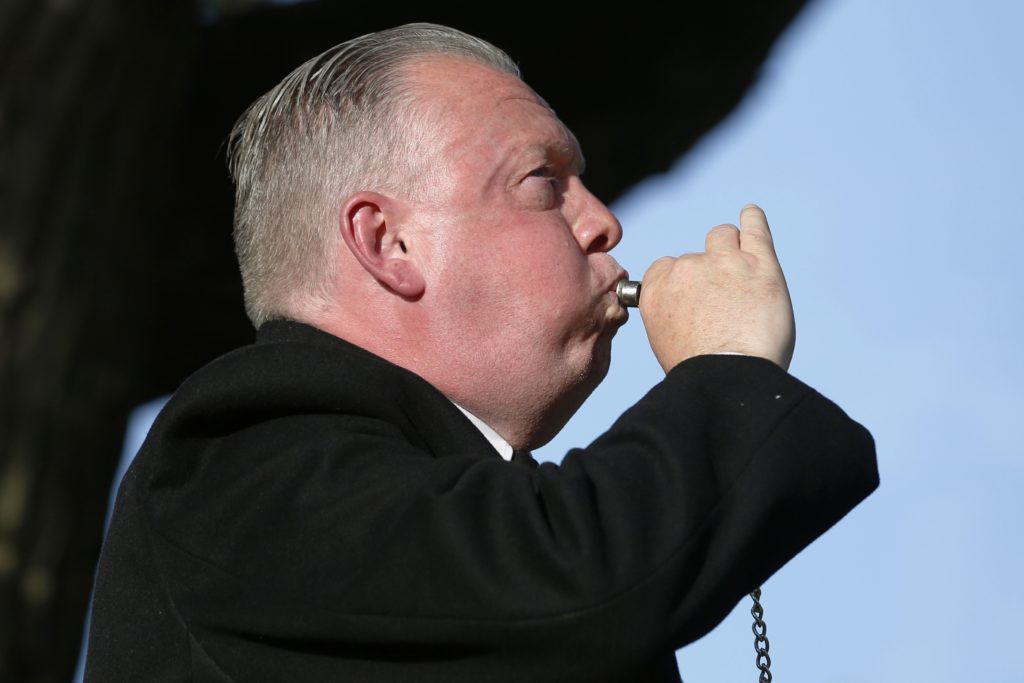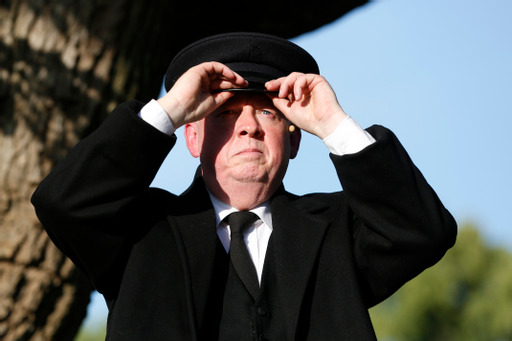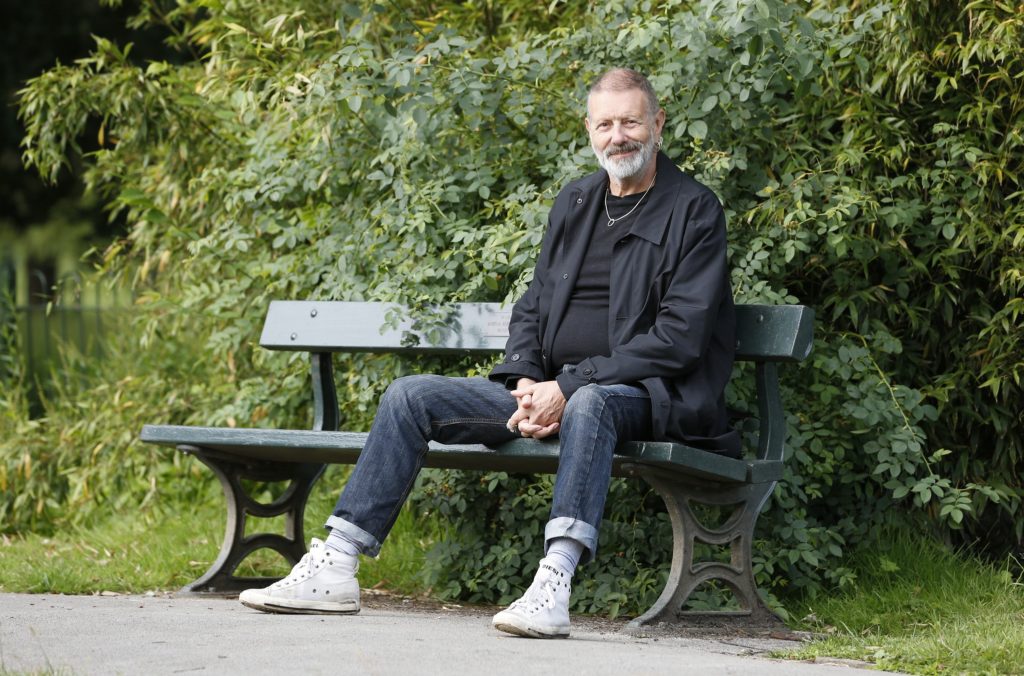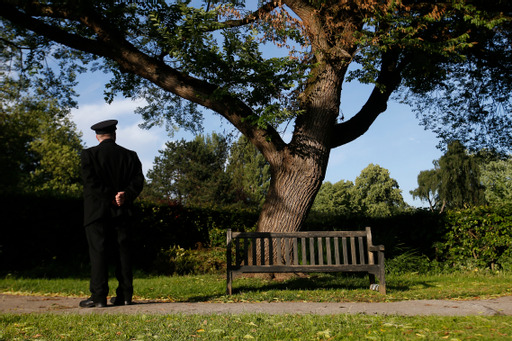
The Park Keeper, Park Bench Theatre, The Friends Garden, Rowntree Park, York, until July 17. Box office: 01904 623568 or at yorktheatreroyal.co.uk
MIKE Kenny has been thinking about retirement but has no thoughts of retiring.
The prolific York playwright has turned 70, and only the other day, as he crossed Millennium Bridge, a teenager chirped up: “You won’t be here in ten years, mush”. Kenny was not offended, instead smiling at what he thought was probably a fair point after a life lived to the full in the allotted span of three score years and ten.
As a writer, save for a sudden shortage of commissions, inspiration or writer’s block, the conventional clocking off with a watch does not apply, but whatever hand is dealt, Kenny nevertheless has been contemplating the impact of retirement.
His landmark birthday has its played, but it is as much to do with the subject matter of his latest commission from Matt Aston, artistic director of Engine House Theatre and director of Park Bench Theatre, the York company Aston set up last summer after the first lockdown to stage three monologues in the socially distanced Friends Garden.
Now, after lockdown three, Park Bench Theatre returns with The Park Keeper to mark Rowntree Park’s centenary with the story of its first park keeper, James ‘Parky’ Bell, who was in charge from 1921 to 1945.

July 16 was his retirement day, and as the 55-minute monologue opens, Sean McKenzie’s immaculately dressed and well-groomed Bell is preparing his retirement speech, breaking down theatre’s fourth wall to ask us if he can try it out on us.
At the same time, Bell has his beady eye on the park, quick to blow his famous shrill whistle when he spots a miscreant. “I know where you live,” he shouts. “I don’t,” he admits to the audience.
Where Kenny has a choice whether to retire or not but won’t because the creative juices still flow so zestfully, Bell has no such choice and does not feel ready to concentrate on gardening or whatever.
Like so many men, he is defined by his job; his validation, even if the physical strength is not what it once was. “I can’t do as much as I once did,” he concedes. Retirement? “I don’t know how to stop. What will I do,” he asks, forlornly. “If I’m not ‘Parky’, who am I? What am I.”
All this is supposition because Kenny has worked from skeletal information. What is known is that Bell and his family did live in the lodge that now houses the Reading Room café; the blast of the Bell whistle was feared by all; he did make a retirement speech.

Kenny fleshes out the story to make Bell a Rowntree cocoa factory worker, a survivor of the First World War (unlike his best friend) and what ensues is a study of the futility and terrible impact of war; the senseless death of so many young men; father-and-son relationships; the value of recreation and public play areas for the ordinary man, woman and child; the denuding effect of retirement.
This is the “what’s it all been for?” moment of reflection for a man who has no faith in religion, for whom hope has been hollowed about by the experience of a war that left him angry at everything and everybody; for whom heaven is empty.
“We all came back with stories. We just couldn’t tell them,” says Bell. That said, in the absence of faith, he found purpose, subsequently loving his work in his “back garden”, Rowntree Park, calling it a “miracle”, where 54,000 plants and trees were planted by the Rowntree family and the park life made him well again.
All the while, The Park Keeper becomes as much a story of Mike Kenny as James ‘Parky’ Bell, who keeps rising from his park bench note-making, still on duty to the last, but suddenly in the grip of a memory, something that troubles, angers or baffles him, and troubles the playwright too.
Consequently, it is both the most personal piece Kenny has ever written and yet a tribute to a stoical, staunch, hard-working pillar of a bygone time, when as many as 12 gardeners worked at Rowntree Park.

Kenny’s authorial voice is strong – typified by his townie quip that “in the country[side], everywhere belongs to someone” – but Sean McKenzie’s rounded performance makes Bell’s voice equally strong and opinionated under Aston’s well-balanced direction. “First of all they take all your time, then you get a watch, so you can see all your seconds tick away,” Bell says of his retirement gift.
McKenzie’s eyes say it all in a performance where he finds the poetry, the profundity, but also the guiding principles of the working man.
Kenny makes reference to cheeky lads calling Bell a “jumped-up caretaker”, but he has Bell saying, “If we take care of it, it will take care of us”, a message for our times when climate change threatens our future as much as war ever did.
Bell hopes for a fairer world, wishing that something can be done to make this world right. Clearly, Kenny has the same wish. “I’m about to get kicked out of paradise,” bemoans Bell. “On with the future. Cheers,” his speech concludes, but with all the uncertainty whether peace will last after the handshakes in Romeo & Juliet.
Kenny has placed us in the last chance saloon, but who will blow ‘Parky’ Bell’s whistle to stop the pattern of bad behaviour?
